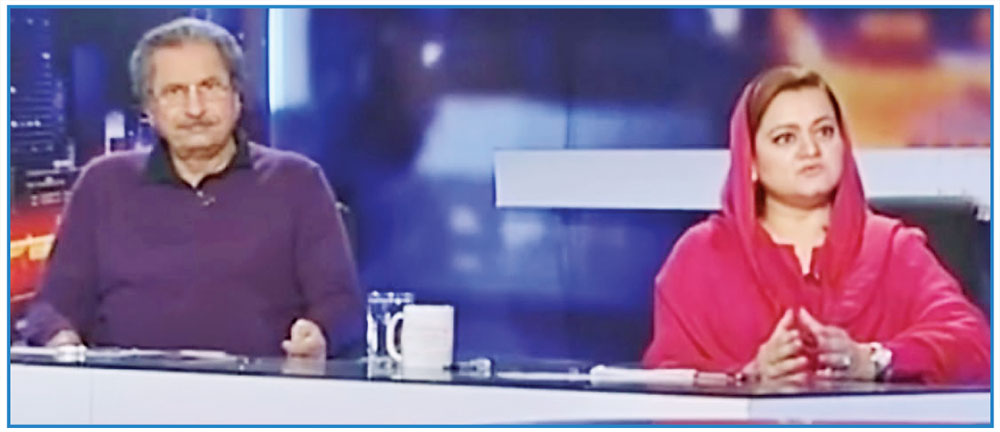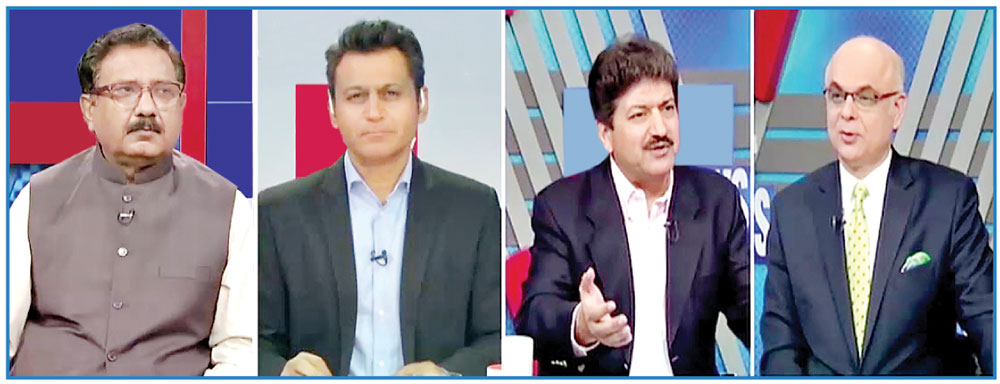PREJUDICE AGAINST WOMEN
- 11 Aug - 17 Aug, 2018
I f I say that back in the 90s, our television was a lot better than what it has become today, you might think I have just been administered general anaesthesia. But you’d be wrong.

Think about it. This was the time you switched on to your tele for Nusrat Fateh Ali Khan taking you to the limits of personal discovery and introspection, a time you could still savour the writings of Ashfaq Ahmed, Noor-ul-Huda Shah and Haseena Moin. Junoon’s Sainyonee had us all entranced, Junaid Jamshed was still singing Do Pal Ka Ye Jewan Hai. In fact, the entire music scene back then had a promise of an epoch. Then, when you turned to sports, Jehangir and Jansher had envy of the world, Waseem and Waqar made finger-puppets out of top international batsmen, and Imran Khan forever knew what he was doing. Yes, it was all marginalised by government control and censorship to the point that you couldn’t even breathe on television without formal permission from the Prime Minister himself, a string of his henchmen. The news, too, made dodo appear to have been broadcasted from cemeteries in Islamabad, but despite all this, despite all the King’s horses and all the King’s men domineering it, our media fruitfully flaunted that intrinsic Pakistani-ness, a hallmark of the nation’s thinking, and its resourcefulness.
Doom and despondency then took over, trading in the classical national ingenuity for a bunch of bickering absurds called anchors. Blithering gossip now rings out from four corners like Dil, Dil Pakistan once did. And there is more – lots and lots of it.

It appears that anyone and everyone who has a fancy table and some chairs, has announced a talk-show. The recipe is simple: what you do is that having sorted your furniture out, you come up with a title befitting the morale of a Napoleonic infantry brigade: explosively loud and a bit over the top. Couple this with a background score, a sort of reengineered version of Carl Orff’s, O Fortuna satisfied you have given life and meaning to what essentially was to ever be meaningless. Next, you call in your guests, which is much like rounding up drunkards in St. Petersburg on a Saturday afternoon, and when you do, remember to assemble them in sorts so they squabble. As configurations of TV productions go, it doesn’t get simpler than this. And profitable; perhaps the only time the producer of your talk-show is not happy is when he runs out of saliva to turn his fingers through his cash. Audience, for the most part, is happy too, come to think of it: a bit of Tabasco in the face of all and total hopelessness is a fruit.
Jolly well. But, may I ask, what’s the point?
There is one, I have been endlessly assured.
It’s a prevailing belief that these talk-shows expose the ill of our system, especially political. And that on its own, is an antidote to all the viruses in the cesspool our system has become – of back-breaking corruption, of incompetence – ignorance, bad management, wretched governess, crumpling security, evilness of terrorism, absence of heath care and education, lack of sanitation – so goes on the list. What is even more interesting is that the belief prevails in full realisation that the ladies and gentlemen running these frightful shows have now become, and see themselves, in the likes of chartered accountants, specialists doctors and such-as, the sort of professionals who love and need complications. They, after all, get paid for that. Finding some is alright, but they wouldn’t mind going as far as creating some, or blowing the ones in hand way out of proportion if there are none to be found new on the day.
That, then, is the predicament: the rationale of their very existence is for them to be perceived as a cure to a disease. For them to be of any pertinence, the disease must exist. And because of their affinity to growth, so must the disease.
You can’t help but think we’ve seen something like this before:
During the days of the British Raj, a complaint once held ground that there are too many black cobras in and around Delhi. Something had to be done which the British, in their usual bureaucratic mannerism, of course did, except it didn’t turn out quite as they had hoped. In fact, what they were to undertake wasn’t merely a verity that they may have been the rulers of India, but they had no idea what the Indians were capable of, it was to also go into the pages of history, a fable, an example, a lighthouse prompting all, never to take its path. They called it ‘The Cobra Effect’.
What the government did was offer bounty for every cobra anyone captured, dead or alive. The idea worked for a while, but it didn’t take long for the locals to spot the fact that the Eldorado itself is unaware of the riches it had on offer.
They – usually farmers – started breeding the dreadful creatures. Snakes usually destroy most of their own eggs, preventing their hatching, perhaps as a nature’s way of limiting them in number. Now though, the process had a human intervention. Each egg meant moolah; it had to be nurtured, and it of course was. Before long, folks out there had nurseries going, teeming with highly venomous Indian cobras, an endless supply of chutes to slide their hand down the Queen’s pocket.
But then, not all the Queen’s men were that stupid. Oh no. They were a lot worse. Having learnt of what was happening, they decided to simply abandon the program in all its abruption. The farmers took it as a bluff, figuring the government had no choice but to reinstate it. To force the government’s hand into it, and naturally to avoid the expense of feeding the animals, they released all their breeds out in the open.
Now the number of cobras in Delhi and surroundings were in folds of what they were when the supposed program of their remedy had started. What started as a solution, in time, made the problem hell of a lot worse.
It’s staggering when you come across the pertinence of the history and times to the present day. We should probably call this ‘The TV Anchor Effect’.
COMMENTS